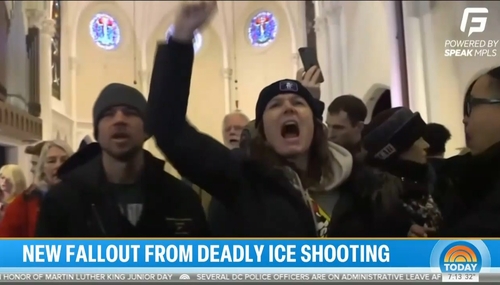Democrats, including president-elect Barack Obama and Senate Banking Committee Chairman Christopher Dodd, received more money in campaign contributions from Fannie Mae and Freddie Mac than any other members of Congress.
You couldn't tell that from an Associated Press article published Sunday which completely blamed Republicans for the lack of regulation and oversight of Freddie Mac.
In fact, when you add it all up, Pete Yost's "AP IMPACT: How Freddie Mac Halted Regulatory Drive" is more like a blog posting at a Netroots website than something that should come from the nation's leading wire service (h/t NBer Dana Brown):
Internal Freddie Mac budget records show $11.7 million was paid to 52 outside lobbyists and consultants in 2006. Power brokers such as former House Speaker Newt Gingrich were recruited with six-figure contracts. Freddie Mac paid the following amounts to the firms of former Republican lawmakers or ex-GOP staffers in 2006:
--Sen. Alfonse D'Amato of New York, at Park Strategies, $240,000.
--Rep. Vin Weber of Minnesota, at Clark & Weinstock, $360,297.
--Rep. Susan Molinari of New York, at Washington Group, $300,062.
--Susan Hirschmann at Williams & Jensen, former chief of staff to House Majority Leader Tom DeLay, R-Texas, $240,790.
For some strange reason, Yost didn't inform his readers about contributions by this government sponsored enterprise and Fannie Mae to active members of Congress since 1989. Take a look at the top three recipients:
Dodd, Christopher $165,400
Obama, Barack $126,349
Kerry, John $111,000
As Obama is a junior senator only in Congress since January 2005, being second on this list is quite a dubious accomplishment. I guess Yost felt this was unimportant as he blamed the lack of regulation of Freddie Mac on Republicans.
But that wasn't all:
The AP previously described, in October, how Freddie Mac thwarted efforts to bring a tough regulatory bill sponsored by Republican Sens. Chuck Hagel of Nebraska, John Sununu of New Hampshire, Elizabeth Dole of North Carolina and John McCain of Arizona to a full Senate vote.
At a meeting days after Hagel's bill went to the full Senate, Syron and McLoughlin berated the company's in-house lobbyists for failing to keep Hagel's bill corralled in committee, said the four people familiar with events at Freddie Mac at the time.
Freddie Mac shifted into high gear, secretly paying a Republican consulting firm, Washington-based DCI Group, $2 million to kill Hagel's legislation. The covert lobbying campaign targeted Republican senators in 2005-06.
What Yost was talking about here is S. 190, the Federal Housing Enterprise Regulatory Reform Act of 2005. Unfortunately, what he neglected to tell his readers is that Senate Democrats were opposed to this bill, and Republicans were never able to get the votes to avoid a filibuster.
As Yost's colleague at AP Martin Crutsinger wrote on July 28, 2005 (no link available):
The Senate Banking Committee approved legislation Thursday that would strengthen federal government oversight of Fannie Mae and Freddie Mac, including a controversial provision that would force the two mortgage giants to trim their multibillion-dollar investment holdings.
The committee, chaired by Sen. Richard Shelby, R-Ala., approved the measure on a party-line vote of 11-9, with Republicans voting in favor and Democrats opposed. The push to strengthen regulation has gained momentum since both Fannie Mae, the nation's second largest financial institution after Citigroup Inc., and Freddie Mac have been beset by accounting scandals in recent years.
The bill the Senate committee approved takes a tougher approach than a measure the House Financial Services Committee passed last May on a key issue - giving the new regulator broad power over the kinds of assets Fannie and Freddie would be allowed to hold. Supporters of this approach say it could force the two companies to significantly reduce the combined $1.5 trillion in investments they now hold. [...]
The tougher approach on trimming investment holdings is backed by the Bush administration and Federal Reserve Chairman Alan Greenspan. The Fed chairman has warned that the two companies have grown so large that if they got into financial difficulties they would pose a risk to the entire financial system.
As Senate Republicans, the Bush administration, and Alan Greenspan were all for this legislation, Yost's accusation that the GOP prevented its passage is grossly inaccurate.
I guess this is what passes for sound investigative reporting at the AP today.




